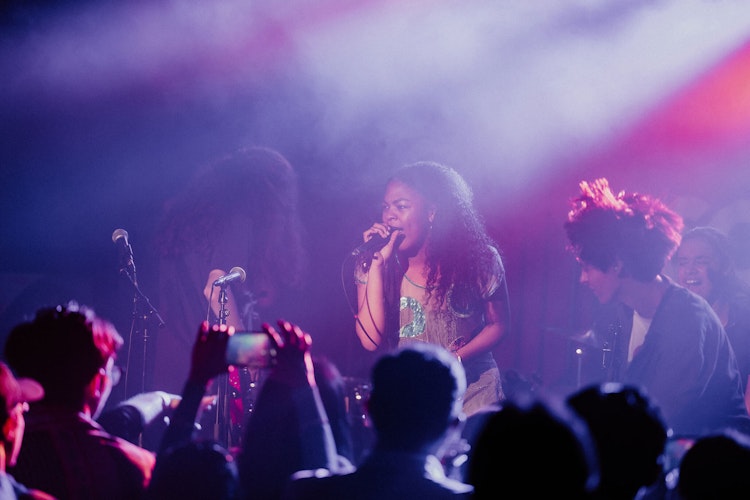Black History Month begins today, and we use this time to remind our community how important it is to amplify the voices of the Black community and honor the legacy of the trailblazing Black artists who shaped Rock and Roll as it is today. School of Rock, and our partners at Shure Inc., look back at some iconic moments in music history to show our students that the same microphones they use in their rehearsal rooms and on stage were also used by the legendary Black musicians who inspire them.
Unidyne I Model 55 Microphone
In the 1940s, a new music/dance form was born in the African American community. A combination of swing jazz, boogie-woogie, and amplified blues, it was known as rhythm & blues and became popular via radio, records, and night clubs. Chicago was one of the centers for rhythm & blues, and eventually it became the birthplace of blues-driven rock 'n' roll played by black electric guitarists/singers like Bo Diddley, Howlin' Wolf, Muddy Waters, and Chuck Berry.
Sister Rosetta Tharpe, a soulful singer and superb guitarist, gained popularity in the 1930s/40s with her gospel recordings. She was among the first gospel musicians to appeal to the rhythm & blues audience and the rock & roll audience. Tharpe influenced Little Richard, Johnny Cash, Carl Perkins, Chuck Berry, Elvis Presley, Jerry Lee Lewis, Eric Clapton, and many others. She was known as "the original soul sister" and "the Godmother of rock & roll.” Tharpe was a pioneer in her guitar technique and was among the first popular recording artists to use heavy distortion on her electric guitar.
Louis Thomas Jordan was a saxophonist, singer, songwriter, and bandleader, popular from the late 1930s to the early 1950s. Known as "the King of the Jukebox", his highest popularity was the end of the swing era. Performing mostly on alto sax, Jordan also was a talented singer with great comedic flair. He fronted his own band for more than twenty years. Jordan sang duets with some of the biggest stars of his time, including Louis Armstrong, Ella Fitzgerald, and Bing Crosby. With his dynamic Tympany Five band, Jordan mapped out the main parameters of rhythm & blues.
Jimmy McPhail was a respected rhythm & blues singer from Washington DC. During his long career, he performed with stars like Pearl Bailey, Billie Holiday, Ella Fitzgerald, Josephine Baker. He sang in the premiere of Duke Ellington's first "Sacred Concert," a program of original religious music composed by Ellington.

SM57 Microphone
In the summer of 1969, the Harlem Cultural Festival took place over six weeks. An extravaganza of African-American music, the festival featured artists like Stevie Wonder, B.B. King, Mavis Staples, Mahalia Jackson, Gladys Knight, Sly Stone, The Fifth Dimension, and others. More than 300,000 people attended the concerts. Though overshadowed by another 1969 music festival, Woodstock, the Harlem Cultural Festival has been described as “The Black Woodstock.
Unlike Woodstock, where Unidyne III Model 565 mics were ubiquitous, it was Unidyne III SM57s, equipped with A2WS windscreens and A47 quick disconnect isolation stand adapters that were the frontline vocal mics during the “Summer of Soul.” Performers at the festival that used the SM57 which dominated the front line included Stevie Wonder, Sly and the Family Stone, Gladys Knight and the Pips, The Fifth Dimension, Mavis Staples and Mahalia Jackson.
A newly released documentary about the festival entitled “Summer of Soul”, directed by Ahmir “Questlove” Thompson, won the Grand Jury prize and the Audience prize at the 2021 Sundance Film Festival.

The Unidyne I Model 55 and SM57 microphones by Shure Inc. are available directly from School of Rock via the GearSelect program. Check your local school for details.



